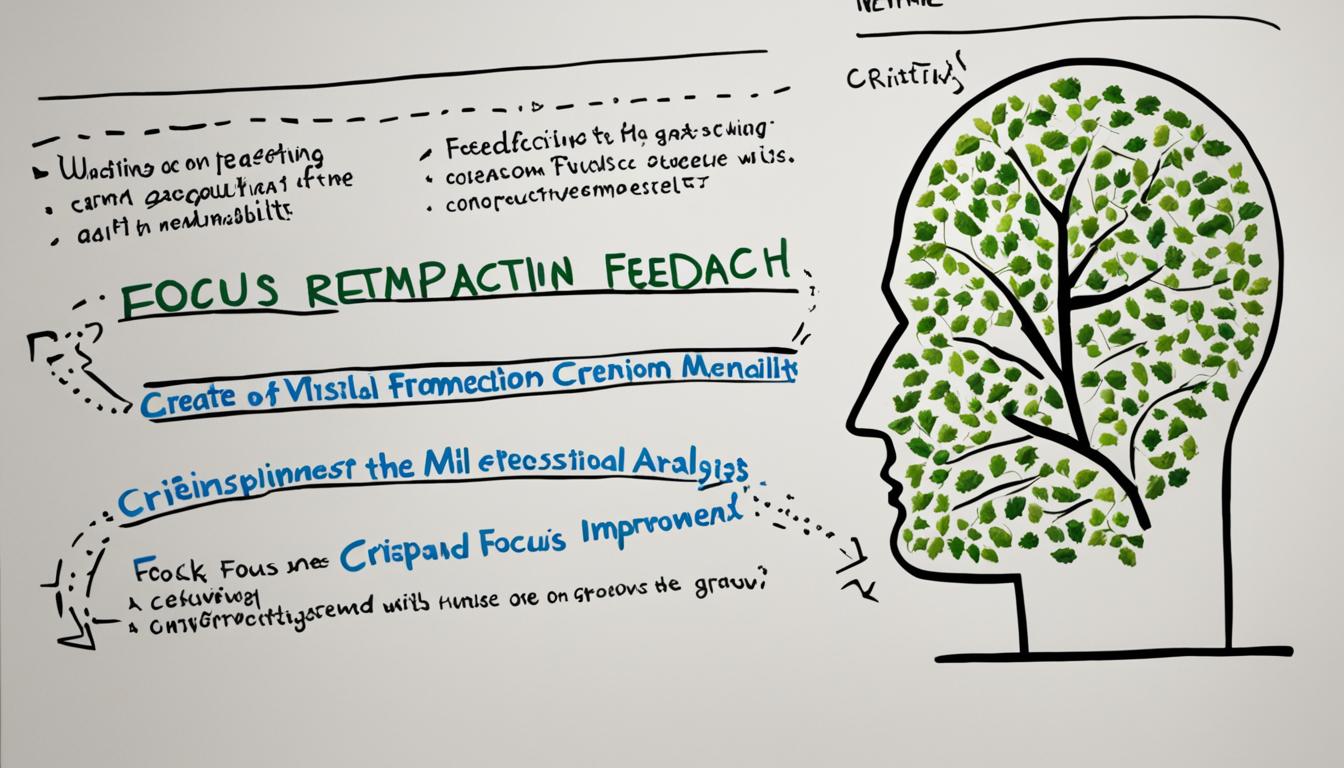Golf is not just a sport; it offers a myriad of psychological benefits that can enhance your mental wellness and overall wellbeing. Whether you’re a seasoned golfer or new to the game, golf provides a unique opportunity to find stress relief, improve self-confidence, enhance concentration, promote emotional wellbeing, and enjoy relaxation and mood enhancement. The cognitive benefits of golf are also worth noting. Engaging in this timeless activity can have a profound impact on your mental health and provide a sanctuary for personal growth.
Research has shown that golf can significantly improve confidence and self-esteem. As you conquer the challenges of the course, you build resilience and a sense of accomplishment that extends beyond the fairways. The concentration required in golf also strengthens your focus and mental clarity, enhancing your cognitive skills both on and off the course. Furthermore, the serene and natural environment of a golf course creates a tranquil space for relaxation and stress reduction, contributing to emotional wellbeing.
Golf is known to have positive effects on individuals with dementia and Parkinson’s disease, offering them a way to engage both physically and mentally. The game provides an outlet for expression, enhancing their quality of life and overall wellbeing. Whether you’re a senior looking to stay socially connected or an individual seeking personal growth, golf provides a platform for social interaction and camaraderie, fostering important connections and combatting social isolation.
Key Takeaways:
- Golf offers stress relief, self-confidence, concentration improvement, emotional wellbeing, and mood enhancement.
- Engaging in golf can promote relaxation and reduce anxiety.
- Golf provides a safe and enjoyable way to enhance mental wellness and improve overall mental health.
- Playing golf can improve confidence and self-esteem.
- Regular golf activities can contribute to better concentration and cognitive skills.
Golf and Mental Health
Golf is known to provide numerous mental health benefits. Engaging in regular golf activities can have a positive impact on various aspects of mental wellness, including reducing anxiety, improving self-confidence, and boosting self-esteem. Additionally, research has shown that physical activity, such as playing golf, can be an effective treatment for mild to moderate depression.
Spending time outdoors on the golf course exposes players to natural light, which has been associated with improved mood and reduced symptoms of depression. The combination of physical activity and spending time in nature creates a powerful synergy that enhances mental wellbeing. While more research is needed to fully understand the mechanisms behind the mental health benefits of golf, initial studies have shown promising results.
By engaging in regular golf activities, individuals have the opportunity to improve their mental health while enjoying the game and its surrounding environment. The combination of physical movement, concentration, and the meditative nature of golf can promote a state of mindfulness that helps redirect thoughts and reduce stress. As golfers navigate the course, they can find solace in the present moment and cultivate a sense of calm.
Golf and Anxiety
Playing golf allows individuals to step away from the pressures of daily life and focus on the game. The rhythmic nature of swinging a golf club and the precision required can have a calming effect on the mind, reducing feelings of anxiety and promoting a sense of control.
Golf and self-confidence
As golfers improve their skills and see progress in their gameplay, they naturally gain confidence in their abilities. The process of setting goals, practicing, and overcoming challenges on the golf course can translate to increased self-confidence in other areas of life.
Golf and self-esteem
Playing golf provides an opportunity for individuals to challenge themselves and experience personal achievements. As golfers navigate the course, they can develop a sense of accomplishment and satisfaction, fostering positive self-esteem and self-worth.
Overall, golf offers a unique avenue for improving mental health and promoting overall wellbeing. Its combination of physical activity, exposure to natural light, and the mental focus required creates a holistic approach to mental wellness. Whether it’s the serenity of the golf course or the camaraderie with fellow golfers, the sport has the potential to positively impact mental health, build self-esteem, and cultivate a sense of confidence and calmness in individuals.
Golf and Social Interaction
Golf provides an opportunity for social interaction, which is essential for mental wellbeing. Playing golf allows us to engage with others in a friendly and low-stakes environment, fostering camaraderie and human contact.
This social aspect of golf is particularly beneficial for older adults who may experience social isolation. Golf offers them a chance to connect with like-minded individuals, form friendships, and enjoy each other’s company. It creates a sense of community and belonging, contributing to their mental and emotional wellbeing.
“Golf is a game that brings people together, whether it’s through friendly competition or a leisurely round with friends. The camaraderie that develops on the golf course is truly special.”
Social interaction has been proven to have positive effects on mental health. It helps reduce the risk of developing conditions like depression, anxiety, and cognitive decline. Through social engagement, individuals feel supported, understood, and connected, leading to improved overall mental health.
Golf provides a natural avenue for social interaction and engagement. It offers a shared activity that brings people together, allowing them to bond over a common interest. Whether it’s a casual round with friends or joining a golf club, golf fosters social connections and encourages meaningful relationships.
By engaging in social interaction through golf, individuals experience a sense of belonging and purpose. They feel valued and appreciated within their golfing community, which positively impacts their mental wellbeing.
Benefits of Social Interaction in Golf:
- Reduces the risk of depression and anxiety
- Enhances cognitive function and reduces the risk of cognitive decline
- Improves self-esteem and overall mental wellbeing
- Fosters feelings of camaraderie and belonging
- Provides support and a sense of community
Overall, golf’s social aspect offers more than just a game. It provides an avenue for social interaction, fostering camaraderie, and promoting mental wellbeing. So, grab your clubs and join us on the course for a round of golf!

Building Confidence through Golf
Playing golf can have a significant impact on building confidence. The game of golf requires practice, skill improvement, and a commitment to the learning process. As individuals dedicate themselves to playing golf regularly and honing their skills, they begin to experience a growth in confidence and self-belief.
The learning process in golf allows for continuous improvement in various aspects of the game. Whether it’s mastering the swing technique, perfecting putting, or strategizing on the course, every small achievement contributes to a sense of growth and accomplishment. Golfers learn to embrace their current skill level while actively striving for improvement, fostering a positive mindset and a willingness to face challenges head-on.
Golf provides an invaluable opportunity to challenge oneself and achieve personal goals. Setting realistic targets and working towards them not only enhances skill development but also boosts self-confidence. With each successful shot, each improvement in technique, golfers experience a sense of accomplishment that translates into increased confidence on and off the course.
The game of golf offers a unique platform for personal growth, inspiring individuals to push beyond their comfort zones and overcome obstacles. As golfers witness their progress, they gain confidence not only in their golfing abilities but also in their capacity for growth and resilience in other areas of life.
Confidence-Boosting Benefits of Golf
| Benefits | Description |
|---|---|
| Enhanced Self-Belief | Regularly playing golf and improving skills leads to increased self-confidence and belief in one’s abilities. |
| Growth Mindset | The learning process in golf fosters a growth mindset, encouraging individuals to embrace challenges and see them as opportunities for personal growth. |
| Goal Achievement | Setting and accomplishing personal goals within the game of golf contributes to a sense of achievement and bolsters self-confidence. |
| Resilience | Overcoming challenges on the golf course builds resilience and the ability to persevere in the face of setbacks. |
| Increased Self-Esteem | By consistently improving skills and achieving personal milestones, golfers experience a boost in self-esteem and a positive self-image. |
Golf provides individuals with a platform to develop their skills, grow in confidence, and embrace personal growth. As golfers progress through the learning process, they unlock their potential, cultivating a positive mindset that extends beyond the golf course. By immersing themselves in the game, individuals become more self-assured, resilient, and ready to take on life’s challenges with confidence.
Practicing Patience on the Golf Course
One of the unique aspects of golf is the requirement for patience. Unlike other sports that may have a faster pace, golf encourages patience and mindfulness. The slow-paced nature of the game allows players to develop patience in their approach to golf and in life. Golfers learn to trust the process and understand that progress takes time.
Practicing patience on the golf course can lead to personal growth and an increased ability to handle challenges. As golfers navigate through the course, they encounter various obstacles and situations that require patience and strategic thinking. Whether it’s carefully planning their shots, reading the green, or recovering from a bad shot, golfers learn to stay calm and patient.
This practice of patience extends beyond the golf course and can be applied in various areas of life. The ability to remain patient and composed under pressure is a valuable skill that can contribute to personal growth and success in different endeavors. By cultivating patience in the context of golf, individuals develop a mindset that embraces the learning process and embraces the ups and downs of life.
Moreover, the mindful nature of golf allows players to fully immerse themselves in the present moment. By focusing on each shot and being aware of their body movements, golfers can experience a sense of mindfulness. This mindfulness on the golf course helps to calm the mind, reduce stress, and enhance overall well-being.
Mindfulness Quote:
“Mindfulness is the key to unlocking the full potential of golf. By staying present in each shot, we cultivate patience, improve focus, and experience the joy of the game.”
Golf provides a valuable opportunity to develop patience as a skill and apply it in various areas of life. The slow-paced nature of the game, coupled with the mindful mindset it fosters, allows individuals to enhance their personal growth and well-being. So, embrace the challenges, trust the process, and reap the rewards of patience on and off the golf course.

The Benefits of Practicing Patience:
- Fosters personal growth and resilience
- Enhances problem-solving skills
- Reduces stress and anxiety
- Improves focus and concentration
- Promotes emotional well-being
Conclusion
Engaging in golf offers a myriad of psychological benefits that promote mental wellness and overall wellbeing. The sport provides a powerful avenue for stress relief, enabling individuals to unwind and escape the pressures of daily life. Golf also plays a significant role in improving self-confidence, empowering players to believe in their abilities both on and off the course.
Moreover, golf enhances concentration, sharpening the focus and mental acuity of individuals who partake in the sport. The precise nature of each swing and putt requires a high level of concentration, stimulating cognitive function and improving overall mental performance. This heightened concentration carries over into other aspects of life, leading to greater productivity and efficiency.
Emotional wellbeing is also nurtured through golf, as the serene and picturesque environment helps individuals find solace and peace of mind. The beauty of nature, combined with the physical activity of playing golf, contributes to a feeling of contentment and emotional balance. The sport serves as a sanctuary for mental wellbeing, offering respite from the demands of daily life.
Ultimately, golf is not just a physical game but a holistic experience that promotes psychological growth and self-improvement. It fosters social interaction and camaraderie, providing a platform for individuals to connect and combat social isolation. The journey of mastering the sport instills patience and resilience, contributing to personal growth and a greater ability to navigate life’s challenges.
In conclusion, golf is a valuable activity for enhancing psychological wellbeing. It is a sport that encompasses stress relief, boosted self-confidence, improved concentration, emotional balance, and personal growth. So, let us embrace the remarkable psychological benefits of golf and embark on a journey of mental wellness and self-discovery.
FAQ
What are the psychological benefits of golf?
Golf has numerous psychological benefits including stress relief, improved self-confidence, concentration improvement, emotional wellbeing, relaxation, mood enhancement, and cognitive benefits.
How does golf impact mental health?
Playing golf can help improve mental health by reducing anxiety, boosting self-esteem, and treating mild to moderate depression. Spending time outdoors and engaging in physical activity while playing golf can also help improve overall mood and reduce symptoms of depression.
Can golf help with social interaction?
Yes, golf provides an opportunity for social interaction. Playing golf allows individuals to engage with others in a friendly environment, fostering camaraderie and human contact. This social aspect of golf is beneficial for mental wellbeing, particularly for older adults who may experience social isolation.
Can golf contribute to building confidence?
Yes, golf can contribute to building confidence. As individuals play golf regularly and improve their skills, they gain confidence in their abilities. The learning process in golf allows for growth and improvement, which can lead to increased self-confidence and self-belief.
How does golf help in practicing patience?
The slow-paced nature of golf encourages patience and mindfulness. Golfers learn to trust the process and understand that progress takes time. Practicing patience on the golf course can lead to personal growth and an increased ability to handle challenges.



